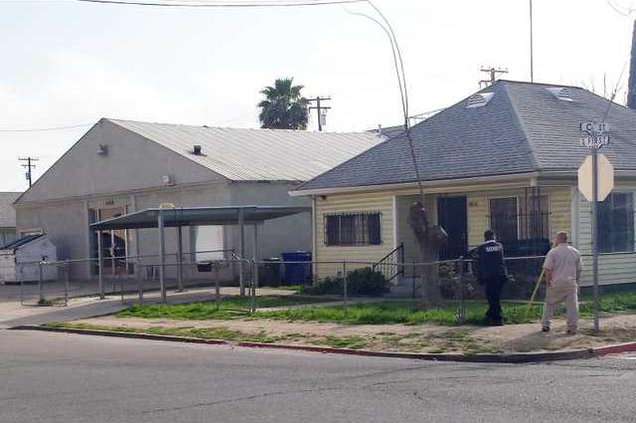Poet Robert Frost said good fences make good neighbors. For the residents of S. Boardway, First, D and C streets, they would be pleased if people quit urinating and defecating in their yards.
The residents of those neighborhoods got a chance to express their concerns and frustrations to City of Turlock staff, as well as Turlock Gospel Mission, about what they believe is an increased presence of the homeless in that area. The city, represented primarily by fire and police officials, hosted the residents at a Neighborhood Forum Wednesday night.
Several years ago California enacted Senate Bill 2, which essentially requires all California communities to identify at least one zone where emergency shelters can be established, as well as areas for transitional and supportive housing. After the bill was passed the Turlock City Council approved a zoning overlay with the boundaries of A Street to the North; Center and F streets to the east; Linwood Avenue to the south; and Lander Avenue to the north. Among the varied reasons for why that area was zoned as SB-2 compliant was that the We Care cold weather shelter and United Samaritans Foundation were already within that region.
In 2012, the Turlock Gospel Mission purchased the property at 437 S. Broadway and began work on a year-round emergency shelter. More recently the Turlock Gospel Mission moved its Homeless Assistance Ministry, a day center, to a rented space at 408 S. First St.
The residents’ primary issue is that the addition of the Turlock Gospel Mission to the neighborhood has led to an unalterable shift to the area and has left them with few options. Several residents said they feel menaced by the gatherings of people on the streets and sidewalks outside their homes and in the alleys. Others had complaints of people using their yards as restrooms, using foul language, sleeping behind cars and causing disturbances.
“It sounds like a done deal, but at least hear us out,” said resident Martha Perez. “We are scared to death out there sometimes. Privacy is out. Some of the people have mental illness. Are you telling me I am safe with that out there?”
The Turlock Gospel Mission for its part has been trying to be good neighbors. The organization sends out crews to clean around the area and have had security patrol some of the surrounding area, and not just TGM property. They also have met with residents and will continue to do so to address specific concerns. But TGM wants it known that they have no intention of finding a new home.
“This area is our home,” Turlock Gospel Mission Executive Director Tim Guerino said to the approximately 50 people in attendance. “We pay taxes just like everyone else. This is where we are going to be.”
The meeting in part served as an informational session on SB-2, as well as what the police department can and cannot do.
“Homelessness is not a crime,” explained Turlock Police Lt. Ron Reid. “We can’t arrest someone just for standing around on the sidewalk.”
Reid explained the individuals causing problems are not usually the homeless utilizing the services offered by the Turlock Gospel Mission, We Care and United Samaritans. Rather, he said the trouble-makers are usually “vagrants” with no connection to Turlock and who prey on the homeless. It was a sentiment shared by Mick Matthews, a homeless man who uses the help given by the service organizations.
“The homeless don’t want to be disturbing the neighborhood,” Matthews said. “We want to help. It’s the vagrants camping out by the railroad tracks causing the problems and brings it down on the homeless.”
Reid implored the residents to make the problems known to the police department as they occur.
“The best thing you can do is be eyes for us,” Reid said. “And call when you see something.”
The only consensus reached at the neighborhood forum was that another meeting is in order — one that is more focused on problem-solving.
“We need to have immediate solutions and we need long-term solutions, “Guerino said.





